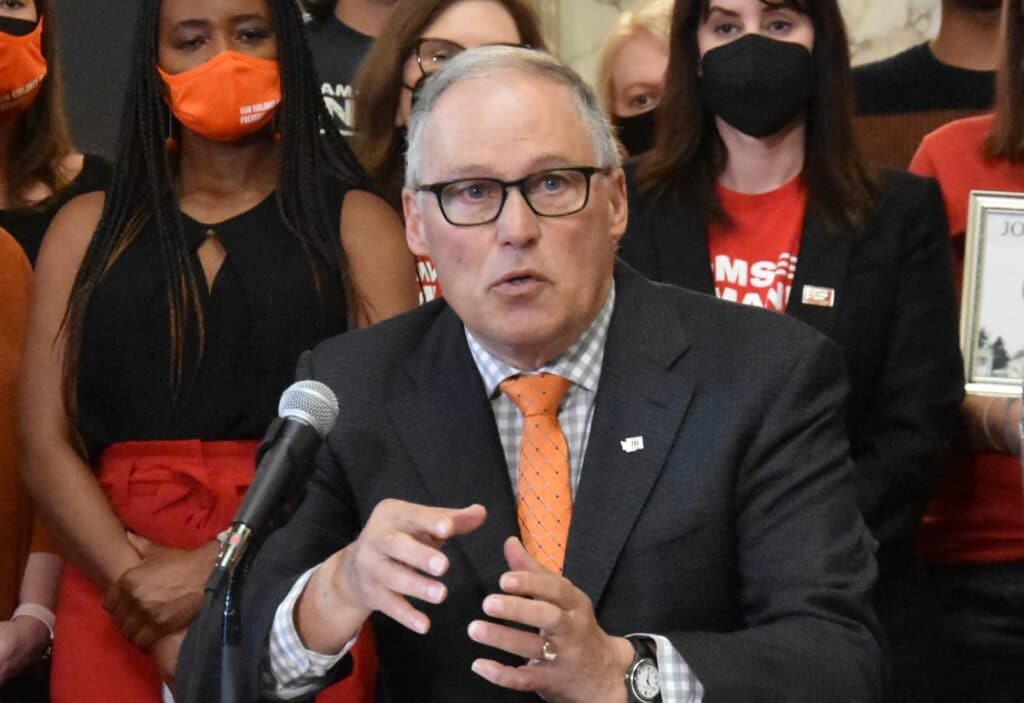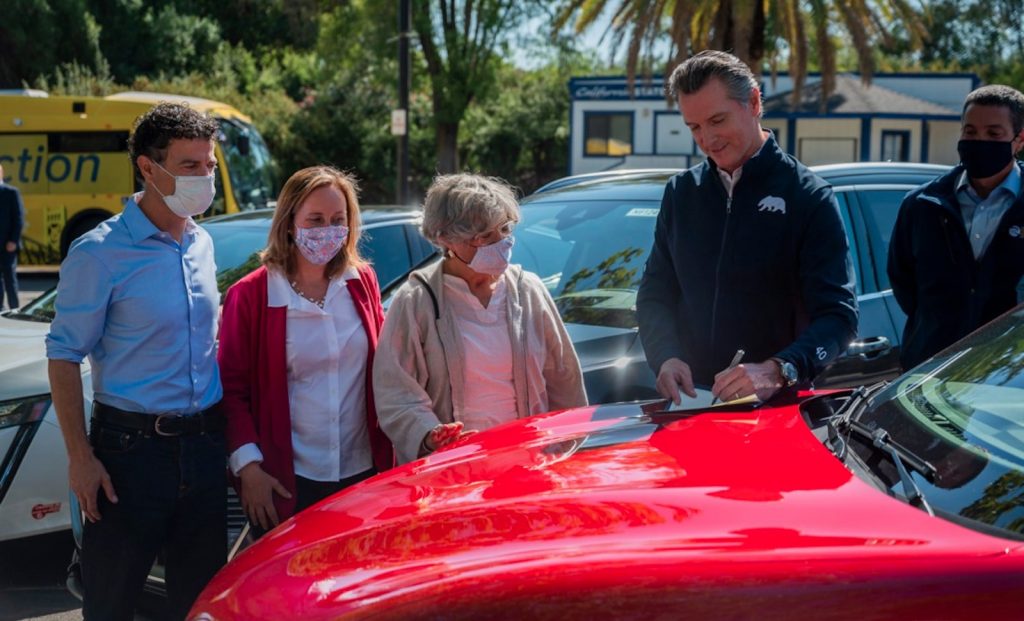The State of Washington is poised to become the first state to ban the sale of new vehicles with internal combustion engines by the end of the decade.

Governor Jay Inslee, an advocate of EVs, signed the bill after he previously vetoed an almost identical bill last year because it came to his desk with an amendment that would assess motorists for every mile they traveled on state roads.
When, in a surprise, he vetoed the transportation bill in 2021, Inslee said, “achieving a goal of 100% electric vehicles is too important to tie to the implementation of a separate policy like the road usage charge.”
The new bill, which includes money for hybrid-electric-powered craft for state’s fleet of ferry boats, replacing a key bridge along I-5 and for mass transit, including free fares for anyone under 18, defers action on any kind road usage fee.
“There is no way to tackle climate change without tackling transportation and that’s what these bills do,” Inslee said. “In this package, we’re entwining the ability to get better, more efficient transportation with the way to save our climate.”
The legislation gets around the fee issue by creating by an interagency electric-vehicle coordinating council, led by the Washington state departments of commerce and transportation, according to analysis of the bill.
The bill does not include an increase in the state gasoline taxes.

The legislation makes Washington the first state to ban the sales of vehicles with internal combustion engines by the end 2030. It does include exceptions for vehicles weighting more than 10,000 pounds and for emergency vehicles.
Climate legislation stalled
California, New Jersey and Massachusetts have adopted bans on the sales of electric vehicles after 2035. California’s ban, however, was done by executive order and does not have the teeth of the Washington law, which is considered one of the most sweeping pieces of legislation adopted in the U.S. to fight climate change.
Similar bans on the sales of ICE cars have been instrumental in pushing automakers into expanding the production and sale of EVs.
The U.S. Congress has approved a major piece of legislation to upgrade the nation’s infrastructure, which includes sweeping for provisions for encouraging the expansion of the electric charging network across the U.S.
Legislation expanding the $7,500 tax credit for purchasers of new electric vehicles, which was part of President Joe Biden’s “Build Back Better” plan has been blocked in Congress.








This is lunacy of the highest order. What will happen to all of the industries that support internal combustion engines? Hopefully someone is challenging this in court. We have been taken over by phony crisis hoaxers.
If you’re calling the issue of climate change a “hoax,” you need to rethink that. You’d be dead wrong. If you are concerned about the speed of the transition being called for by Washington, that’s an entirely different matter.
Paul E.
Will trucks bringing goods to Washington be banned? Ev’s are no cleaner than internal combustion vehicles if you consider manufacturing and disposal.
I wouldn’t mind switching in the future but the technology isn’t there yet.
Hi, Craig,
The Washington State ban focuses on the sale of new passenger vehicles and some other products. Old vehicles will not be banned, whether passenger models, last-mile delivery vehicles or 18-wheelers.
As to environmental impact, your comment is largely correct. There are costs in the form of higher energy levels needed to produce today’s batteries. And BEVs tend to use more lightweight materials, such as aluminum, that may need higher energy to produce — initially. Recycled aluminum is actually quite energy efficient and will become more common going forward. The same will be true of battery compounds, like lithium, even nickel and cobalt, as recycling efforts grow and more EVs reach end-of-life. (There also will be far less cobalt in future batteries.)
There’ve been a number of studies about the well-to-wheels energy and emissions footprint of BEVs and, at the worst, where coal is the primary source, they still get onto the black side of the ledger by somewhere between 50,000 to 65,000 miles driven. Use solar or other renewables and that will fall by at least half. Future improvements, ie recycling, changes in needed materials — like cobalt — and so on will bring that down even faster. And that includes improvements in energy efficiency.
Today, range is the number most folks focus on. No surprise, especially with an undersized public charging network. Going forward, I expect automakers to be judged by the range they deliver per kilowatt-hour, very much along the lines of miles per gallon. Today, some BEVs yield barely 1 mile/kWh, with the average a bit above 2, according to the EPA. The best, ie Tesla Long Range models at around 4, and the Lucid Air Dream Range edition at nearly 5, show what we should expect going forward. The Mercedes EQXX prototype is targeting 7 miles/kWh.
Paul E.
If they ban internal combustion engines they are effectively eliminating hydrogen cars which are significantly cleaner.
I don’t see the connection. Fuel-cell vehicles are NOT internal combustion. And be careful about declaring them “cleaner.” Producing H2 is energy intensive and really isn’t that clean if you produce it by splitting water or cracking it from fossil fuels.
Paul E.